A few months ago, someone told us she had almost cancelled her holiday because the resort’s website used the word “nudist.” Well, that’s probably not such a strange case. We imagine that it must happen now and then that people randomly book a place on websites like Booking.com and only later discover that bikinis are kind of pointless there. That does happen. But this case was different.
She knew very well she was going to a naturist resort. That was the whole idea. It was just that single word “nudist” hidden somewhere on the site that suddenly made her doubt everything. Was she actually going to the kind of place she felt good about, or to the kind of place she imagined to be totally different?
One phone call with the owners solved it. They confirmed that yes, it is a naturist resort, and yes, she would feel at home there. And that was enough for her to relax again. In her mind, there was a huge difference between a naturist resort and a nudist resort. One sounded like her thing. The other sounded like something she would rather avoid.
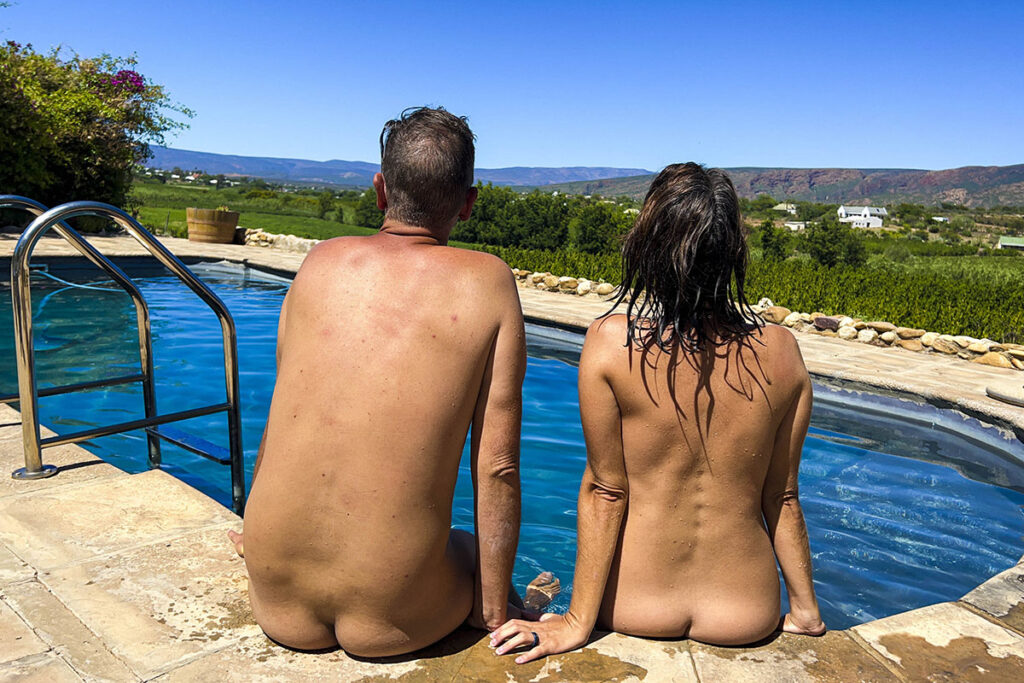
Are you a naturist or a nudist?
If you have ever spent some time in a naturist Facebook group or had a drink at a naturist resort bar, you have probably heard this question before. For some people, it is almost like two currents in social nudity. So asking which one you are feels like a shortcut to see whether you are one of us.
The thing is, these words do not always mean the same thing everywhere.
Naturists and nudists around the world
In Europe, Australia, New Zealand and Canada, the term naturist is the most common one. It is often linked to a wider philosophy. Not just being naked, but also nature, respect, and being okay to bring the kids. When a place calls itself “naturist” in these regions, people expect it to be a safe and relaxed environment.
A nudist, in those same regions, is often seen as someone who just likes to be naked. Which is fine, of course. But then people start wondering why. If it is not about the philosophy or nature, what is it about? That is how the word nudist sometimes gets mixed up with exhibitionism in Europe, even if that is not fair.
In the United States, we noticed almost the opposite. There, nudism is the usual word. Naturism is sometimes still linked to the old style naturism from a century ago. A wider philosophy that also includes no alcohol, no meat, and bathing in rivers. So in the USA, “nudist” sounds normal and “naturist” is more alternative.
Here is a simple example. A person who strives to be naked as much as possible will probably be called a nudist in Europe or Australia, and a naturist in the USA.
Spanish-speaking countries add another twist. There, “nudismo” is the common word for what we do. Because “naturismo” usually means something related to natural products and herbal remedies. That is why you see Tiendas Naturistas (Naturist Shops) in Spain or South America. They sell sunscreen, bug spray, and vitamins. All useful things for naturists, but completely unrelated to social nudity.
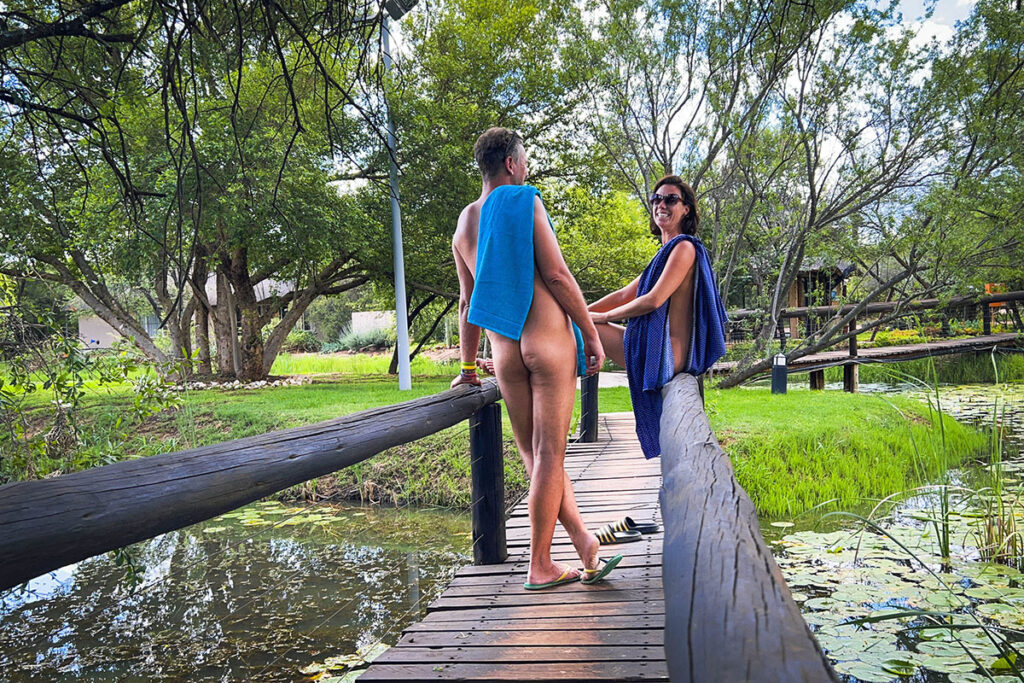
FKK
Let’s add German to the mix. If you go to Croatia, you will see many areas marked FKK. But rarely signs that say naturist or nudist. FKK stands for FreiKörperKultur or free body culture. In European practice, this is basically the same as naturism. While the Spanish were kind of forced to adopt nudism because naturism was already taken, for some reason, the Germans decided to start using a completely different term altogether.
Because German tourists love naked holidays, other countries started using FKK on their beaches and campsites so the Germans would know that they can be naked there. That is why you find FKK signs in Croatia, Montenegro, Slovenia and sometimes even in Italy or on Spanish islands. The meaning is the same, social nudity without a sexual context.
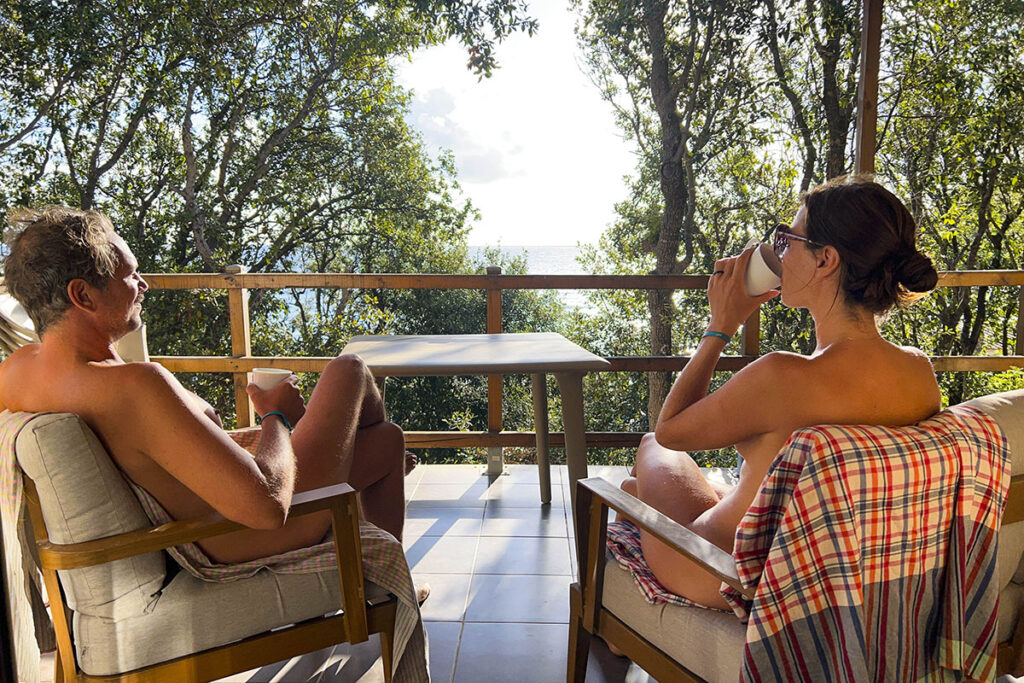
Clothing optional
We have always liked the sound of clothing optional. Naturism and nudism are about freedom, so giving people the option to wear or not wear clothes sounds like even more freedom. But that is not really how the term started.
Back in the late 20th century, somewhere in Florida, some resort owners got together and tried to find a way to attract more people. They figured out that the words “naturist” and “nudist” can scare people off. Because many people do not feel like they are a naturist or a nudist. At least not yet. So they went for clothing optional. Friendlier. Softer. Less of a label.
The funny part is that at most clothing-optional places in the USA or the Caribbean, the clothes are not entirely optional. If you sit around the pool or in the jacuzzi, you are still expected to be nude. The idea is that you are nude around water, and you can cover up when you move around. Cover up means a pareo, a towel or regular clothes. A bikini is not considered a decent cover-up.
If this sounds familiar, it is because this is actually how most naturist resorts in Europe work as well. Truly clothing optional places, where you can keep your swimsuit on all the time and anywhere, are actually very rare.
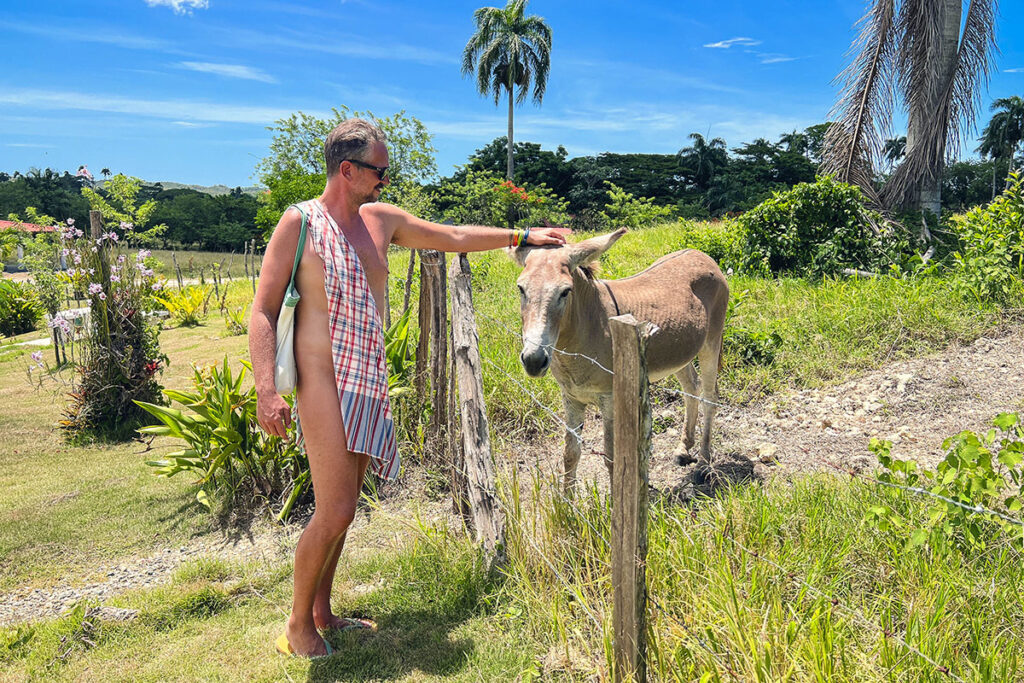
Clothes-free
What they could have called it in Florida, and what we personally like a lot more, is “clothes-free”. It does not have the heavy history of naturism or nudism. It is less confusing than clothing-optional. And it sounds positive.
We liked it so much that we named our second YouTube channel Destination Clothes Free. We like the word “free” in this context, but also appreciate the fact that it works great for places and not so much for people. You can have a clothes-free beach, a clothes-free event, or a clothes-free resort. But nobody calls themselves a clothes freeist. Well, you can, but people might look at you funny.
So you can just be a person who likes to go to clothes-free places. Whether you identify as a naturist, a nudist, something else, or nothing at all.
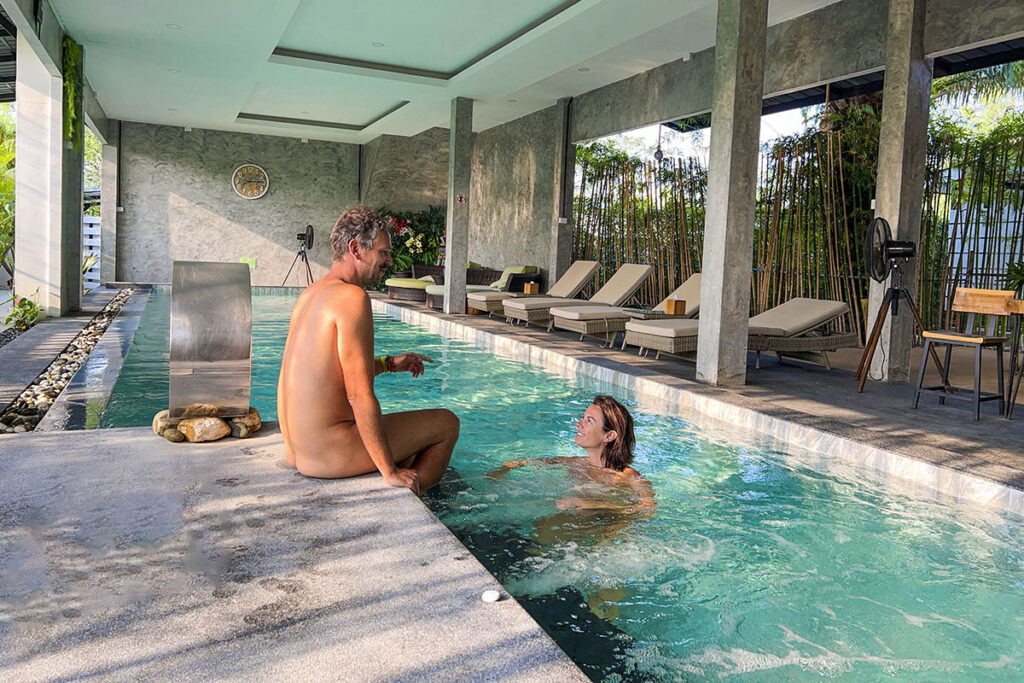
Terms to be careful with
At the start of this blog post, we mentioned the lady who almost cancelled because the resort somewhere used the word “nudist”. As a European, she was used to being a naturist, not knowing how this works in Spanish. It was an unfortunate case of being lost in translation. She was not wrong to double-check, though.
There are terms that are often used for places where more is happening than skinny dipping and sunbathing.
“Libertine” or “libertin” is often used for this in French, Italian or Spanish. In the United States, the word “lifestyle” is the common one. If a place says “open-minded”, it can also mean that they are open to more than what you’re looking for. So it is good to read a bit further.
“Adult only” is probably an exception. It used to mean that activities happen that are not for children’s eyes, but these days it is more often used for exactly what it says. No kids. Many people simply prefer not to be nude around minors or want a quiet holiday. So “adult only” is not automatically sexual.
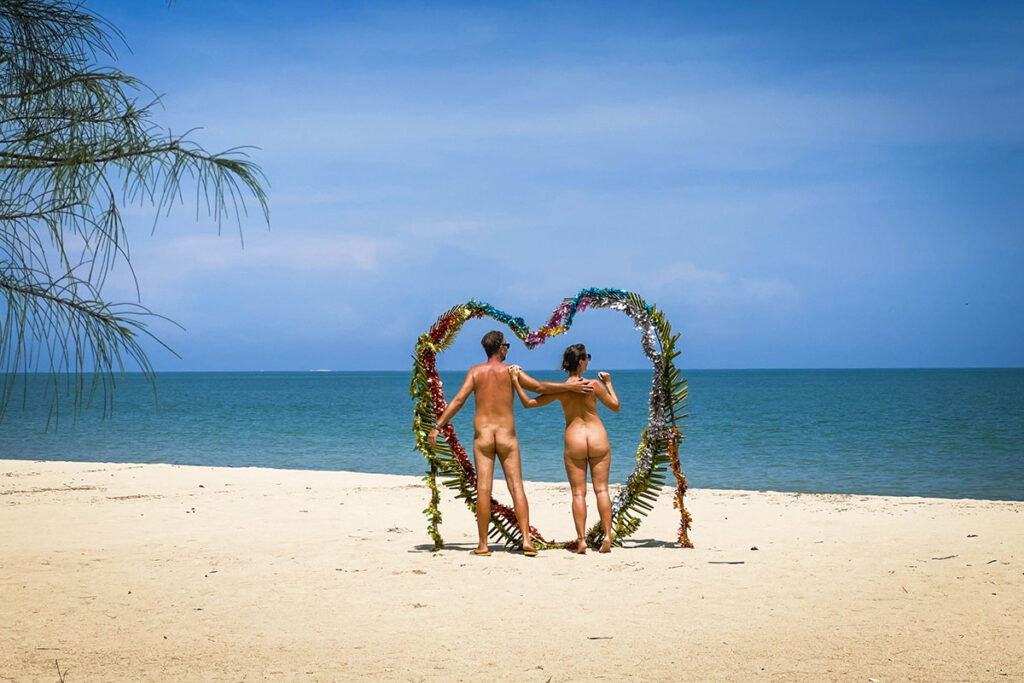
Are you still following?
We hope this makes the terminology around naturism, nudism, FKK, clothing optional and clothes free a bit clearer.
If it made it more complicated, sorry about that. Terms are supposed to make things simple, but once you cross a few borders, they start to play tricks on you.
Nevertheless, we do like to hear what you prefer to call yourself and what the different terms mean to you. Let us know in the comments!
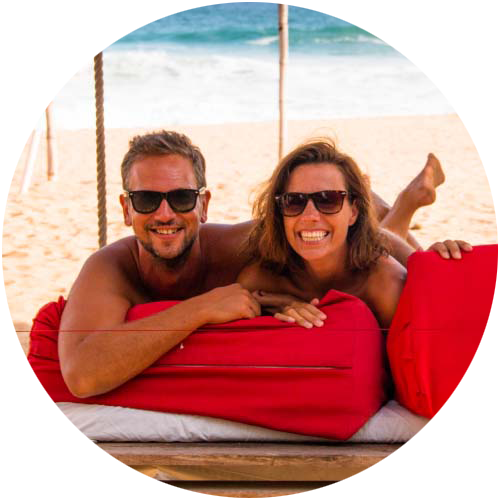
Support Naked Wanderings
Do you like what we do for naturism and naturists?
Did we make you laugh or cry?
Did we help you find the information you were looking for?
Then definitely join our Patreon community!


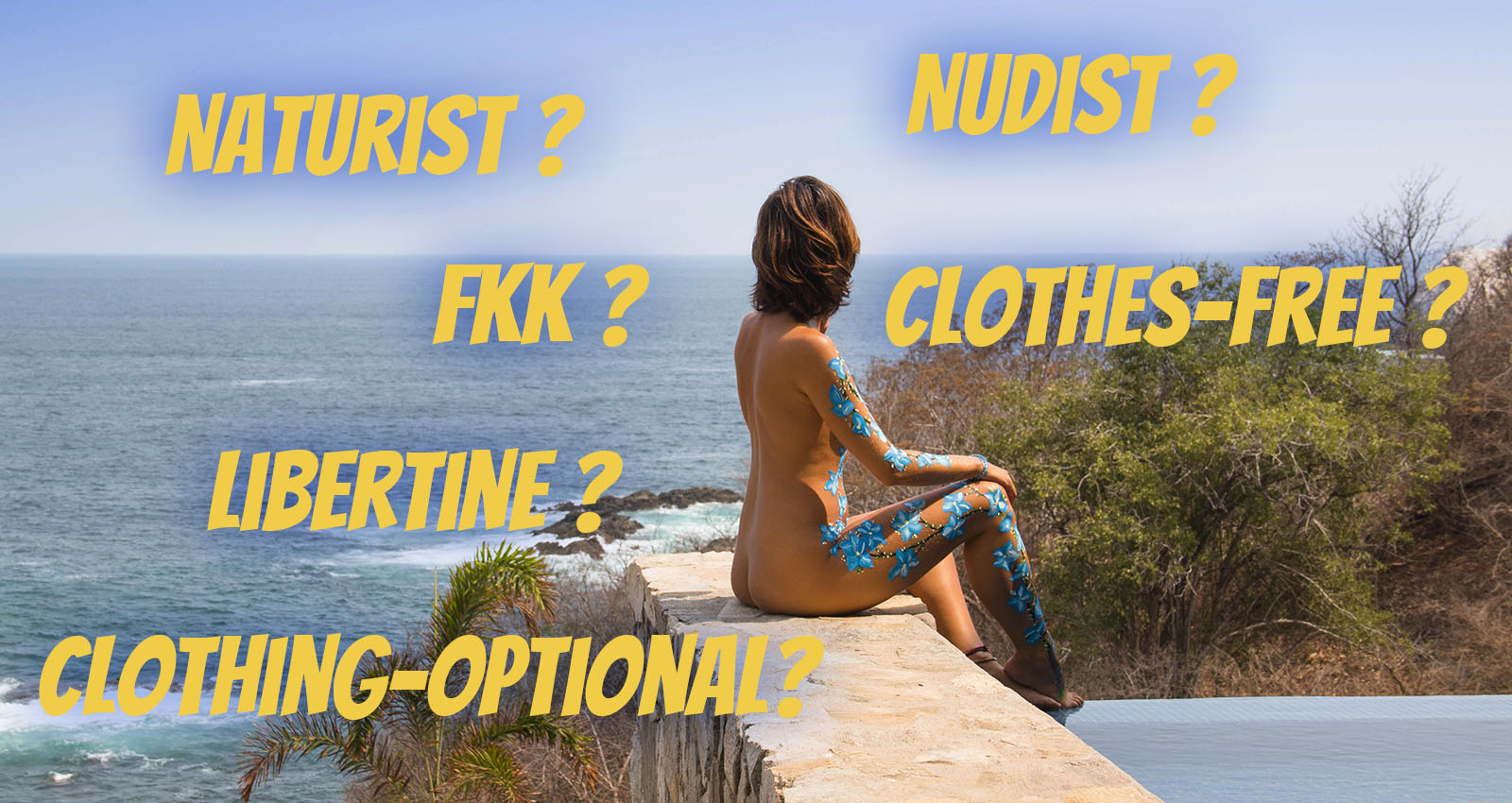


I guess I would call myself a ‘ naturist’ because I enjoy being being in natural surroundings , especially around my home and gardens. Also important to me is the health benefits of naturism. I do have cardiac problems and value the stress relief and circulatory improvements that being clothing free gives me. I wonder if there is a third category , besides ‘ nudist ‘ and ‘ naturist ‘ , for being clothes free for medical reasons ?
BTW the British Heart Foundation is partnered with British Naturism in organising the Naked Heart Walks for fundraising for the BHF.
It’s great that you’ve found health benefits through naturism, the stress relief aspect is definitely valuable. In our opinion, there are as many categories as there are people who enjoy the benefits of going naked. Each with their own reasons.
WOW you really covered a lot of meanings in various places. ‘clothes free’ does seem to cover many things, but also maybe isn’t as specific as some would like because of what it doesn’t EXCLUDE. I, personally, am quite libertarian, in some ways, and the word ‘lifestyle’ doesn’t automatically turn me away. But, since I don’t travel, and am strictly a home nudist (no opportunities otherwise) it really doesn’t make a lot of difference to me. I did like you trying to explain what are becoming very confusing and controversial word meanings.
Thanks for this thoughtful perspective Gerald! You make an interesting point about “clothes free” being inclusive but perhaps too broad for some people’s comfort. The lack of specificity can be both a strength and a weakness depending on what someone’s looking for.
We appreciate your libertarian take on the “lifestyle” terminology, it’s definitely one of those words that means different things to different people. And you’re right that when you’re primarily enjoying nudity at home, a lot of these semantic debates become less relevant to your day-to-day experience. There’s something to be said for keeping things simple and just enjoying what works for you without getting too caught up in labels.
To me, “clothes-free” sounds like nudity is required. And that could scare people away. “Clothing-optional” sounds welcoming to all.
It’s interesting how the same terminology can have opposite effects depending on someone’s perspective and experience. For seasoned naturists, “clothes-free” might signal a more committed naturist environment, but for newcomers or the curious, “clothing-optional” is probably much more approachable and less pressure-filled.
But then again, we see the term “clothing-optional” being used a lot in the USA, and clothes are rarely an actual option…
In Finland, we generally understand that a naturist is someone who likes to be naked a lot. Maybe they belong to another association operating in our country, usually travel abroad to naturist destinations. They talk openly about their hobby.
A nudist is someone who is occasionally, for example on the beach, without clothes. They usually don’t tell anyone.
It’s interesting how these words take on different meanings in different places and languages. In some countries the terms are nearly interchangeable, while in others, there are clear social distinctions between them. The level of openness and commitment seems to be the key differentiator in your context.